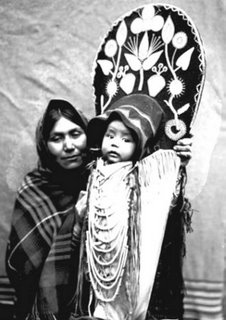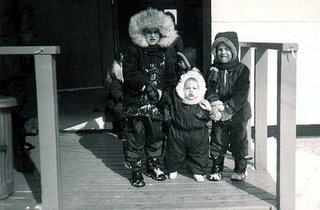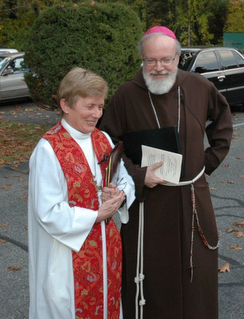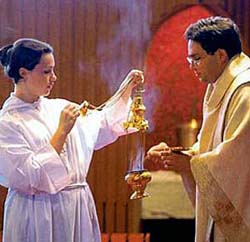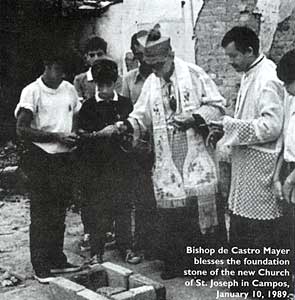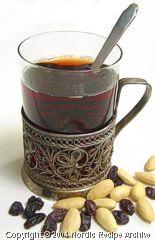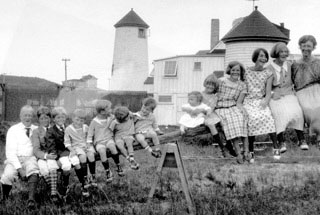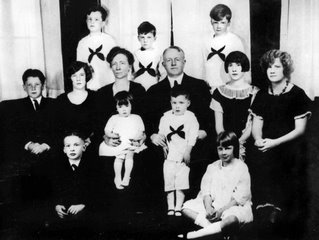
Godwilling, the Inquisitional Offices of Against All Heresies will be moving to an 1850s Farm house in New England at the end of January. I found this charming account of life in New England in the country. For those who have lived or travelled in New England it will be as familiar as an old friend. For those who have never had the privilege, this will be an invitation to experience the delights that New England has to offer.
This accounts relates the delights of reading, walking, spying on one's neighbors (naturally out of concern for their safety and well being), tramping the woods and Indian raids.
It is long but I think engaging.
Excerpt from "New England Farm-House" 1837 pp. 260-270
Nothing can be quieter or more refreshing, after a winter's visiting at Boston or New York, than such an abode in a country village as I made trial of last May. The weeks slipped away only too fast. Dr. and Mrs. F., their little boy, six years old, and myself, were fortunate enough to prevail with a farmer's widow at Stockbridge, Massachusetts, to take us into her house. The house was conspicuous from almost every part of the sweet valley into which it looked; the valley of the Housatonic. It was at the top of a steep hill; a sort of air palace. From our parlour windows we could see all that went on in the village; and I often found it difficult to take off my attention from this kind of spying. It was tempting to trace the horseman's progress along the road, which wound among the meadows, and over the bridge. It was tempting to watch the neighbours going in and out, and the children playing in the courts, or under the tall elms; all the people looking as small and busy as ants upon a hillock. On week-days there was the ox-team in the field; and on Sundays the gathering at the church-door. The larger of the two churches stood in the middle of a green, with stalls behind it for the horses and vehicles which brought the church-goers from a distance. It was a pretty sight to see them converging from every point in the valley, so that the scene was all alive; and then disappear for the space of an hour and a half, as if an earthquake had swallowed up all life; and then pour out from the church door, and, after grouping on the green for a few minutes, betake themselves homewards. Monument Mountain reared itself opposite to us, with its thick woods, and here and there a grey crag protruding. Other mountains closed in the valley, one of which treated us for some nights with the spectacle of a spreading fire in its woods. From the bases of these hills, up to our very door-step, there was one bright carpet of green. Everything, houses, trees, churches, were planted down into this green, so that there was no interruption but the one road, and the blue mazy Housatonic. The softness of the scene, early in a May morning, or when the sun was withdrawing, could not be surpassed by anything seen under a Greek or Italian sky. Sometimes I could scarcely believe it real: it looked air-painted, cloud-moulded.
It was as a favour that the widow Jones* took us in. She does not let lodgings. She opened her house to us, and made us a part of her family. Two of her daughters were at home, and a married son lived at hand. We had a parlour, with three windows, commanding different views of the valley: two good-sized chambers, conveniently furnished, and a large closet between; our board with the family, and every convenience that could be provided: and all for two dollars per week each, and half price for the child. She was advised to ask more, but she refused, as she did not wish to be "grasping." It was a merry afternoon when we followed the wagon up the hill to our new abode, and unpacked, and settled ourselves for our long-expected month of May. Never was unpacking a pleasanter task.
The blossomy cherry-tree beside my chamber window was the first object I saw in the morning when I threw up the sash; and beneath it was a broad fallow, over which the blue jay flitted. By this window there was an easy chair and a light table, a most luxurious arrangement for reading. We breakfasted at half-past seven on excellent bread, potatoes, hung beef, eggs, and strong tea. We admitted no visitors during the forenoon, as our theory was that we were very busy people. Writing and reading did occupy much of our time, but it was surprising how much was left for the exercise of our tongues. Then there were visits to be made to the post-office, and the crockery store, and the cobbler; and Charley found occasion to burst in, a dozen times a-day, with a bunch of violets, or news of the horse or cow, or of the ride he had had, or of the oxen in the field.
We all dined together at two. One of the daughters absented herself at breakfast, that she might arrange our rooms; but both were present at dinner, dressed, and ready for their afternoon's occupation of working and reading. One was fond of flowers, and had learned a great deal about them. She was skilful in drying them, aud could direct us to the places in the woods and meadows where they grew. Some members of the family, more literary than the rest, were gone westward; but there was a taste for books among them all. I often saw a volume on the table of the widow's parlour, with her spectacles in it. She told me, one day, of her satisfaction in her children, that they were given to good pursuits, and all received church members. All young people in these villages are more or less instructed. Schooling is considered a necessary of life. I happened to be looking over an old almanack one day, when I found, among the directions relating to the preparations for winter on a farm, the following: "Secure your cellars from frost. Fasten loose clap-boards and shingles. Secure a good school-master." It seemed doubtful, at the first glance, whether some new farming utensil had not been thus whimsically named; as the brass plate which hooks upon the fender, or upper bar of the grate, is called "the footman;" but the context clearly showed that a man with learning in his head was the article required to be provided before the winter. The only respect, as far as I know, in which we made our kind hostess uneasy, was in our neglect of Charley's book-studies. Charley's little head was full of knowledge of other kinds; but the widow's children had all known more of the produce of the press at his age than he; and she had a few anxious thoughts about him.
In the afternoon we rambled abroad, if the weather was fine; if rainy, we lighted our wood fire, and pursued our employments of the morning, not uncheered by a parting gleam from the west; a bar of bright yellow sky above the hill tops, or a gush of golden light burnishing the dewy valley at the last. Our walks were along the hill road to the lake, on the way to Lenox, or through the farmyard and wood to a tumbling brook in a small ravine. We tried all manner of experiments with moss, stones, and twigs, among its sunny and shadowy reaches, and tiny falls. We hunted up marsh flowers, wood anemones, and violets, and unfolded the delicate ferns, still closely buttoned up, and waiting for the full power of the summer sun. It was some trouble to me, in America, that I could not get opportunity to walk so much as I think necessary to health. It is not the custom there: partly owing to the climate, the extreme heat of summer, and cold of winter; and partly to the absence of convenient and pretty walks in and about the cities; a want which, I trust, will be supplied in time. In Stockbridge much pedestrian exercise may be and is accomplished; and I took the opportunity of indulging in it, much to the surprise of some persons, who were not aware how English ladies can walk. One very warm afternoon, we were going on a visit to Lenox, five miles off. My friends went in a wagon; I preferred walking. The widow's son watched me along the road, and then remarked, "You will see no more of her till you get to Lenox. I would not walk off at that rate, if they gave me Lenox when I got there."
In the evenings, we made a descent upon the village, or the village came up to us. In the latter case, our hostess was always ready with a simple and graceful welcome, and her best endeavours to provide seats for our many friends. If we staid below till after nine, the family had gone to rest on our return. We had only to lift the latch, light our candles, and make our way to the milk-pans, if we were thirsty. For twenty-five years, the widow has lived on the top of her hill, with only a latch to her door. She sleeps undefended, for she has no enemies; and in her village there are no thieves.
One night, when we were visiting some friends in the valley, it was brought home to us what it is to live in a place where there are no hackney coaches, or other travelling shelter. When we should have been going home, it was a tremendous spring-storm; wind, thunder and lightning, and rain in floods. We waited long; but it seemed to have no intention of abating. When at length we did set out, we were a remarkable looking troop; a gentlemanly young lawyer in a pea jacket; the other gentlemen in the roughest coats that could be found; the ladies leaving bonnets and caps behind, with handkerchiefs over their heads, India-rubbers on their feet, their dresses tucked up, and cloaks swathed round them. Our party were speeded up the hill by the fear that Charley would be wakened and alarmed by the storm; but it was a breathless sort of novelty to be working our way through one continued pond to the foot of the hill, and then up the slippery ascent, unbonneted, with the strangling gust in our faces, and no possibility of our finding our way in the pitchy darkness but by the flashes of blue lightning. Well clad as we were, we felt, I believe, something like being paupers, or gentry of the highway, or some such houseless personages exposed to the pelting of the pitiless storm. Charley was found to be sound asleep, and we ourselves no worse off than being steeped over the ankles.
The time came too soon when I must leave the beloved village, when I must see no longer the morning baking and the evening milking; and the soap cauldron boiling in the open air behind the house, with Charley mounted on a log, peeping into it ; and the reading and working, and tying up of flowers in the afternoon. The time was come when the motherly and sisterly kiss were ready for me, and my country life in New England was at an end. It is well for us that our best pleasures have an immortality like our own; that the unseen life is a glorification of the seen. But for this, no one with a human heart would travel abroad, and attach himself to scenes and persons which he cannot but love, but which he must leave.
It was not always that the villagers of New England could place themselves on hill tops, and leave their doors unfastened. There is a striking contrast between their present security and the fears of their forefathers, in the days when the nursling went to church, because it was unsafe at home, in the absence of its father. Father, mother, and children, all went on one horse to meet the total population within the walls of the church; the one parent armed, the other prying about for traces of the fearful red man. Those were the days when the English regicides had fled to the colonies, and were there secreted. Those were the days when anything that was to be made known to all was announced in church, because everybody was sure to be there; and a fast-day was ordained if anything very remarkable was to be done, or conveyed. Sometimes formal announcements were made; sometimes intimations were so interwoven with the texture of the discourse, as that unfriendly ears, if such should be present, should not apprehend the meaning. When any emissary of Charles the Second was prowling in search of a concealed regicide, the pastor preached from some such text as, "Hide the outcasts. Bewray not him that wandereth;"** and the flock understood that they were to be on their guard against spies. Charles the Second could never get hold of one of his enemies who had taken refuge in these colonies.
On looking abroad over the valley of the Connecticut, from the top of Mount Holyoke, I saw the village of Hadley, seated in the meadows, and extending across a promontory, formed by the winding of the river. This promontory afforded a secure grazing ground for the cattle by day, which were driven by night into the area of the village, where the church stood. Goffe, the regicide, was concealed for many years in the parsonage at Hadley; all the people in the village, except two or three, being, in this instance, unaware of an outcast being among them. One Sunday, the Indians attacked the village while the people were all in~ church. The women and children were left in the church, while their husbands, fathers, and brothers went out to do battle with the cruel foe. It went hard with the whites; the Indians were fast bearing them down, when an unknown figure appeared in their ranks, with flowing robes, streaming white hair, and a glittering sword. The cry was raised that the angel Gabriel had been sent in answer to the prayers of the women in the church. Every spirit vas cheered, every arm was nerved, and the Indians were beaten off, with great slaughter. Upon this, Gabriel vanished; but tradition long preserved the memory of his miraculous appearance. The very few who recognized in him Goffe, with his undressed hair, and in his morning gown, kept the secret faithfully. How blessed a change has come over rural life in Massachusetts since those days! Never may its peace and security be invaded by those social abuses which are more hateful than foreign spies; more cruel and treacherous than the injured and exasperated red man of the wilderness!



